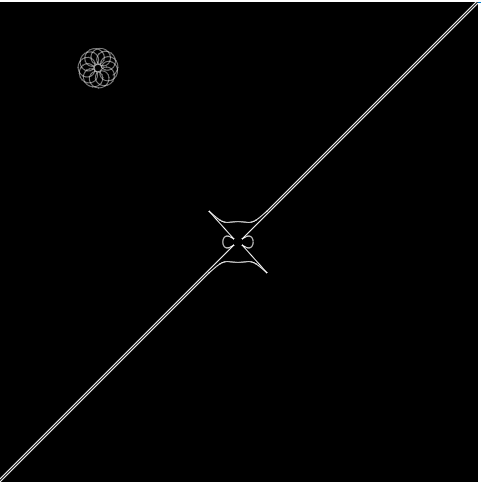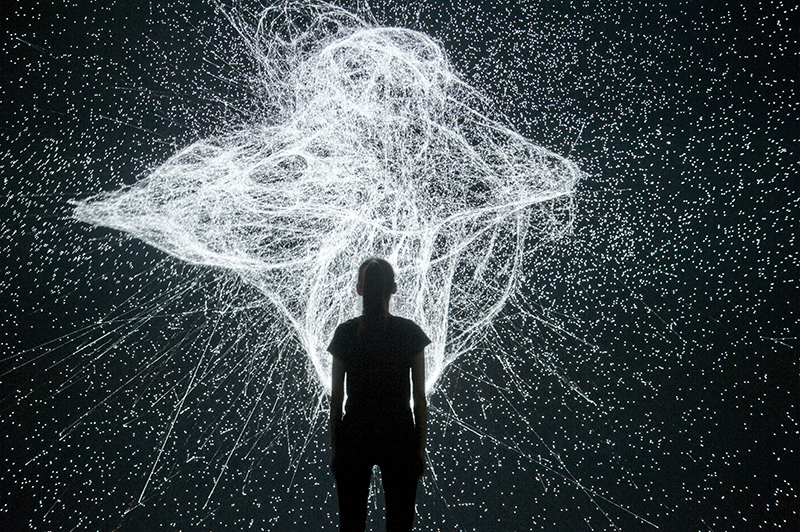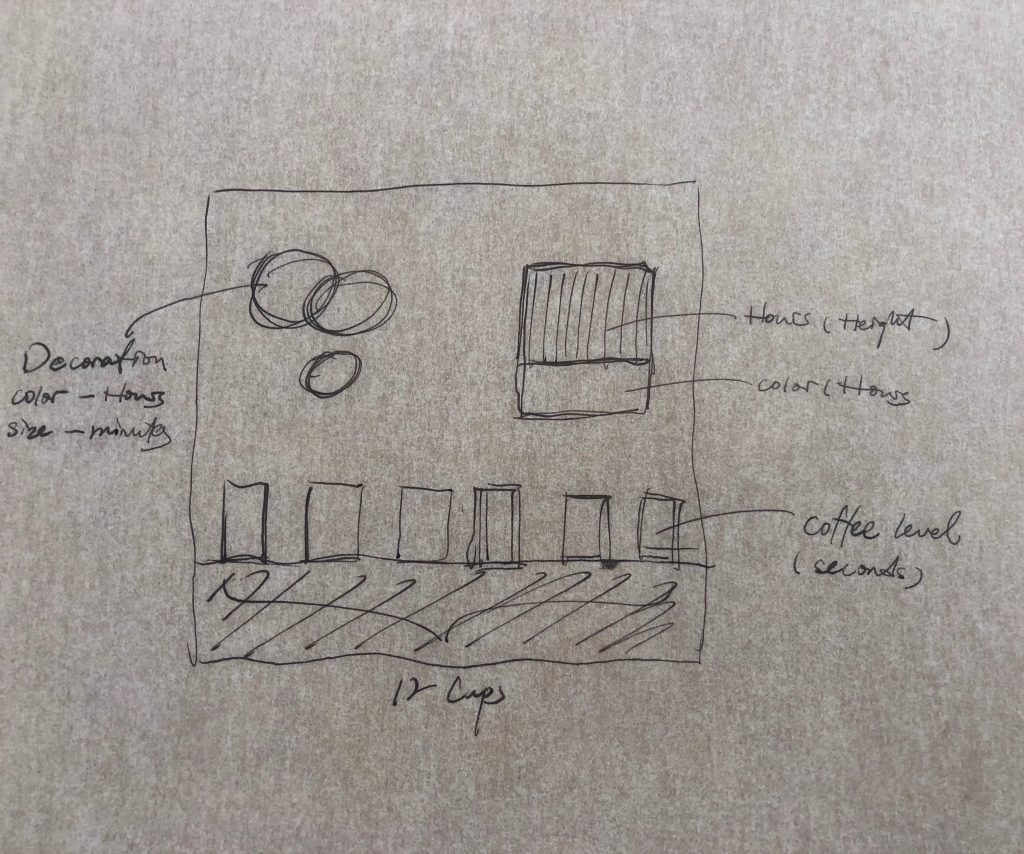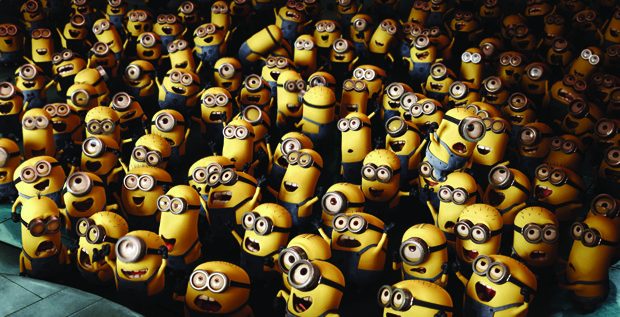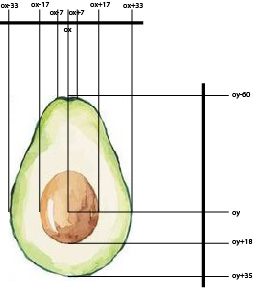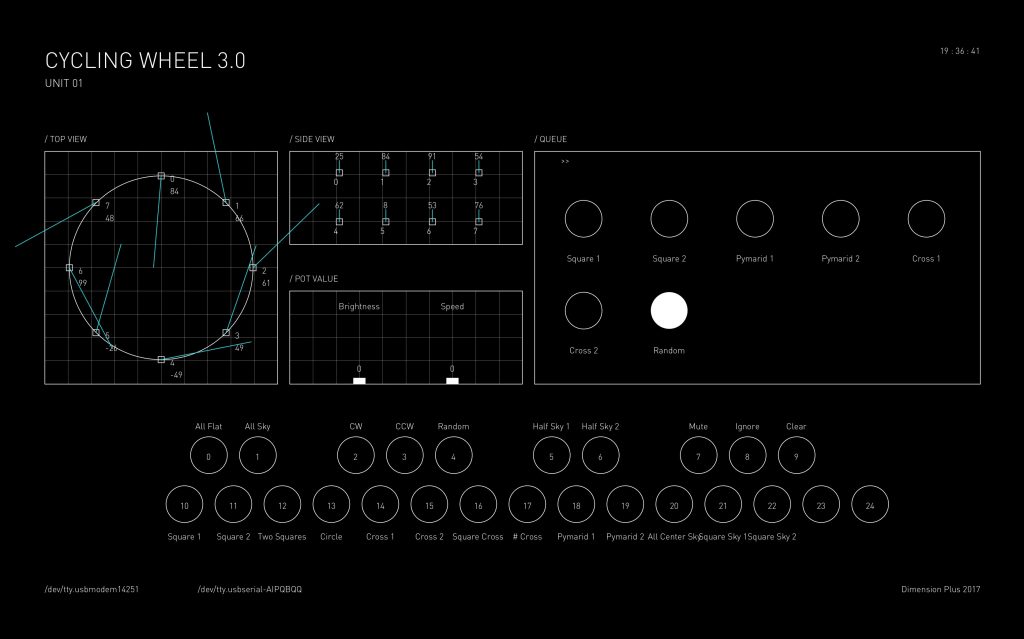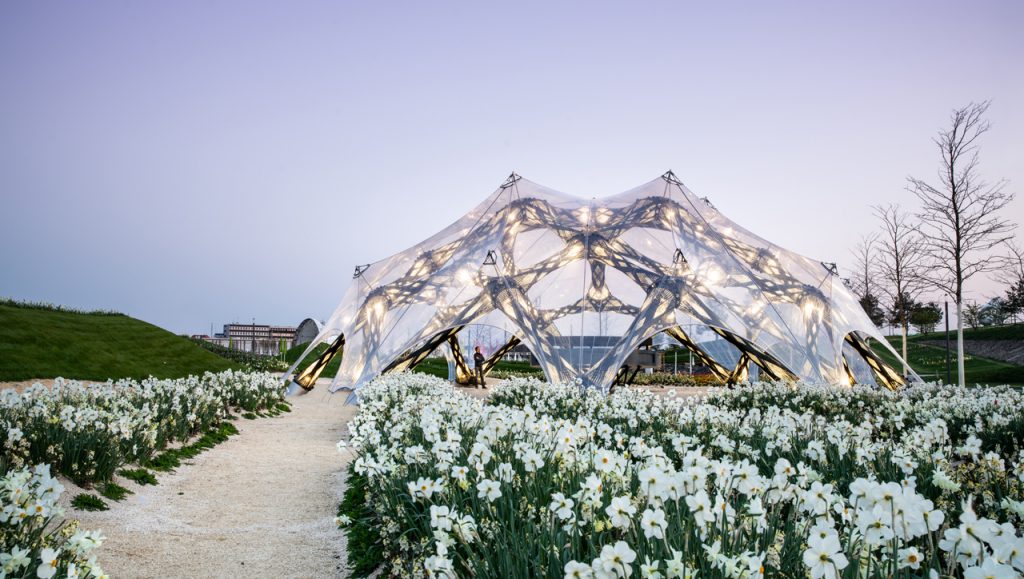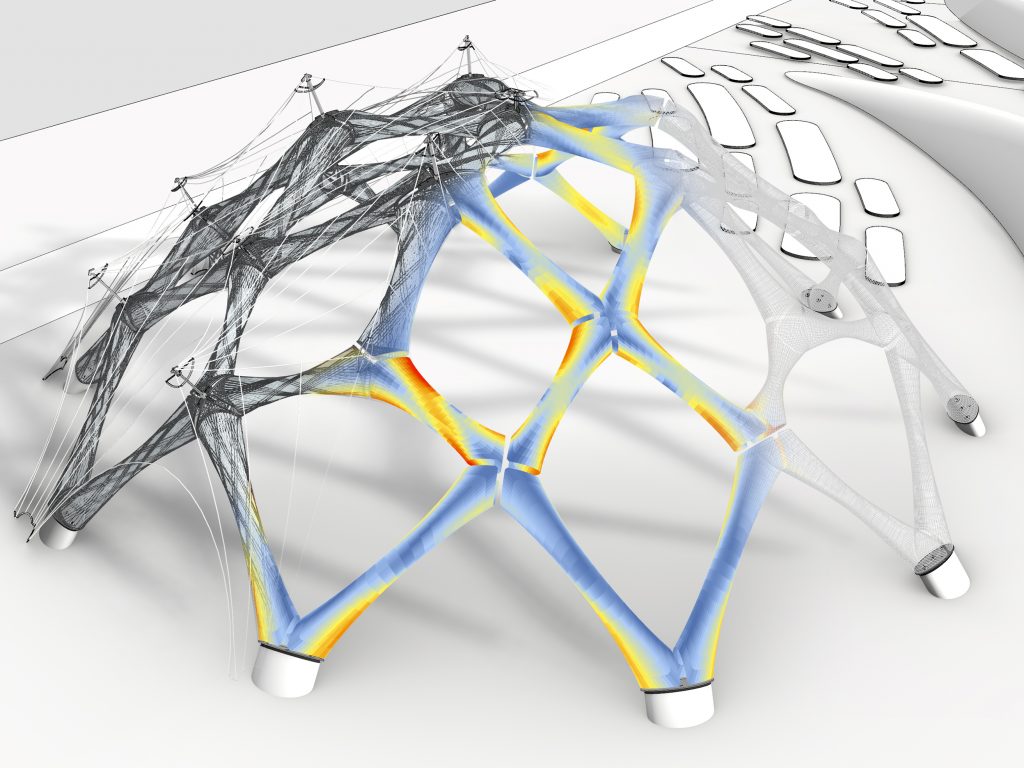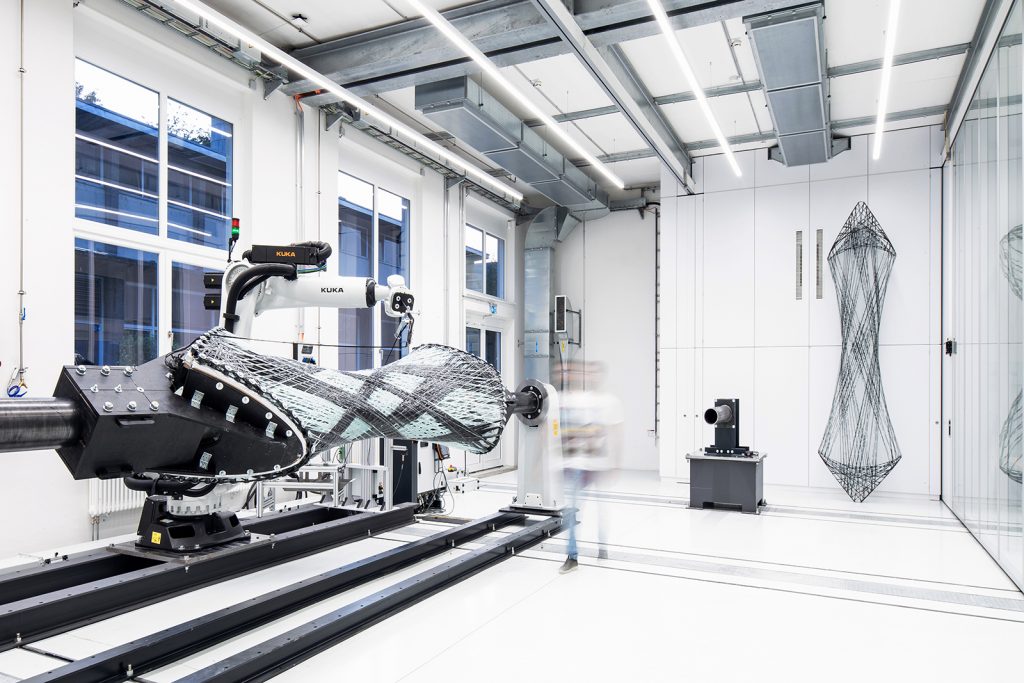sketch
var skyR = 139;
var skyG = 212;
var skyB = 229;
var moonCut = 0;
var sunDia = 100;
var starAngle = 0;
var starR = 249;
var starG = 215;
var starB = 81;
var starW = 10;
var starH = 12;
function setup() {
createCanvas(640, 480);
}
function draw() {
background(skyR, skyG, skyB);
var winR = 254;
var winG = 221;
var winB = 2;
noStroke();
fill(starR,starG,starB);
push();
translate(640 - mouseX, 100);
rotate(radians(starAngle));
rectMode(CENTER);
rect(0, 0, starW, starH);
pop();
push();
translate(800 - mouseX, 150);
rotate(radians(starAngle));
rectMode(CENTER);
rect(0, 0, starW, starH);
pop();
push();
translate(760 - mouseX, 120);
rotate(radians(starAngle));
rectMode(CENTER);
rect(0, 0, starW, starH);
pop();
push();
translate(900 - mouseX, 20);
rotate(radians(starAngle));
rectMode(CENTER);
rect(0, 0, starW, starH);
pop();
push();
translate(500 -mouseX, 50);
rotate(radians(starAngle));
rectMode(CENTER);
rect(0, 0, starW, starH);
pop();
push();
translate(760 - mouseX, 80);
rotate(radians(starAngle));
rectMode(CENTER);
rect(0, 0, starW, starH);
pop();
push();
translate(1000 - mouseX, 60);
rotate(radians(starAngle));
rectMode(CENTER);
rect(0, 0, starW, starH);
pop();
push();
translate(1500 - mouseX, 50);
rotate(radians(starAngle));
rectMode(CENTER);
rect(0, 0, starW, starH);
pop();
push();
translate(1200 - mouseX, 30);
rotate(radians(starAngle));
rectMode(CENTER);
rect(0, 0, starW, starH);
pop();
push();
translate(320 - mouseX, 100);
rotate(radians(starAngle));
rectMode(CENTER);
rect(0, 0, starW, starH);
pop();
push();
translate(200 - mouseX, 130);
rotate(radians(starAngle));
rectMode(CENTER);
rect(0, 0, starW, starH);
pop();
starAngle += mouseX;
if (mouseX > width / 2) {
starW = 10;
starH = 12;
starR = 249;
starG = 215;
starB = 81;
skyR = 61;
skyG = 80;
skyB = 92;
noStroke();
fill(255, 216, 0);
ellipse(mouseX, mouseX - 200, 200,200);
noStroke();
fill(skyR, skyG, skyB);
moonCut = map(mouseX, 240, 640, 0, 400);
ellipse(mouseX - 75, mouseX - 200, moonCut, moonCut);
}
else if (mouseX <= width / 2) {
starR = 255;
starG = 240;
starB = 154;
starW = 42 - mouseX / 10;
starH = 42 - mouseX / 10 + 2;
skyR = 156;
skyG = 215;
skyB = 255;
winR = 255;
winG = 240;
winB = 154;
noStroke();
fill(255, 240, 154);
sunDia = map(mouseX, 0, 320, 30, 200);
ellipse(mouseX, height - mouseX - 40, sunDia, sunDia);
}
noStroke();
fill(0);
beginShape();
vertex(270, 416);
vertex(253, 323);
vertex(242, 323);
vertex(269, 270);
vertex(245, 257);
vertex(235, 206);
vertex(251, 206);
vertex(254, 253);
vertex(273, 264);
vertex(284, 236);
vertex(325, 273);
vertex(324, 160);
vertex(315, 159);
vertex(333, 132);
vertex(350, 93);
vertex(354, 138);
vertex(367, 166);
vertex(358, 164);
vertex(370, 238);
vertex(375, 234);
vertex(384, 278);
vertex(353, 351);
vertex(324, 415);
endShape(CLOSE);
noStroke();
fill(10, 24, 25);
beginShape();
vertex(251, 206);
vertex(254, 253);
vertex(273, 264);
vertex(275, 260);
vertex(262, 250);
vertex(266, 218);
endShape(CLOSE);
noStroke();
fill(20, 53, 60);
beginShape();
vertex(335, 310);
vertex(398, 343);
vertex(389, 344);
vertex(320, 314);
endShape(CLOSE);
noStroke();
fill(39, 83, 94);
beginShape();
vertex(320, 314);
vertex(389, 344);
vertex(377, 420);
vertex(325, 415);
endShape(CLOSE);
noStroke();
fill(10, 24, 25);
beginShape();
vertex(350, 93);
vertex(354, 138);
vertex(367, 166);
vertex(389, 176);
vertex(372, 129);
endShape(CLOSE);
noStroke();
fill(20, 53, 60);
beginShape();
vertex(367, 166);
vertex(389, 176);
vertex(379, 177);
vertex (357, 164);
endShape(CLOSE);
noStroke();
fill(39, 83, 94);
beginShape();
vertex(370, 238);
vertex(353, 252);
vertex(358, 164);
vertex(378, 176);
endShape(CLOSE);
noStroke();
fill(10, 24, 25);
beginShape();
vertex(375, 234);
vertex(384, 278);
vertex(412, 306);
vertex(401, 273);
endShape(CLOSE);
noStroke();
fill(20, 53, 60);
beginShape();
vertex(384, 278);
vertex(412, 306);
vertex(407, 308);
vertex(378, 278);
endShape(CLOSE);
noStroke();
fill(39, 83, 94);
beginShape();
vertex(407, 308);
vertex(378, 278);
vertex(366, 312);
vertex(390, 337);
endShape(CLOSE);
noStroke();
fill(10, 24, 25);
beginShape();
vertex(284, 236);
vertex(325, 273);
vertex(398, 343);
vertex(335, 310);
endShape(CLOSE);
noStroke();
fill(0);
beginShape();
curveVertex(0, 640);
curveVertex(0, 360);
curveVertex(0, 360);
curveVertex(68, 400);
curveVertex(137, 412);
curveVertex(183, 423);
curveVertex(225, 413);
curveVertex(295, 410);
curveVertex(254, 413);
curveVertex(320, 410);
curveVertex(409, 423);
curveVertex(477, 403);
curveVertex(550, 400);
curveVertex(640, 425);
curveVertex(640, 480);
endShape(CLOSE);
noStroke();
fill(winR, winG, winB);
beginShape();
vertex(279, 329);
vertex(283, 364);
vertex(298, 362);
vertex(293, 331);
vertex(288, 324);
vertex(283, 324);
endShape(CLOSE);
ellipse(289, 286, 18, 22);
beginShape();
vertex(353, 272);
vertex(368, 277);
vertex(362, 293);
vertex(351, 286);
endShape(CLOSE);
beginShape();
vertex(331, 205);
vertex(347, 207);
vertex(347, 172);
curveVertex(340, 166);
curveVertex(333, 171);
endShape(CLOSE);
noFill();
stroke(0);
strokeWeight(1);
line(333, 177, 348, 180);
line(331, 186, 348, 188);
line(332, 194, 349, 197);
line(339, 166, 339, 206);
line(279, 335, 294, 332);
line(281, 344, 296, 342);
line(280, 354, 296, 351);
line(284, 322, 292, 364);
noStroke();
fill(0);
beginShape();
vertex(330, 323);
vertex(330, 340);
vertex(347, 348);
vertex(348, 334);
endShape(CLOSE);
beginShape();
vertex(329, 362);
vertex(331, 376);
vertex(348, 382);
vertex(348, 368);
endShape(CLOSE);
beginShape();
vertex(383, 293);
vertex(378, 305);
vertex(391, 317);
vertex(398, 308);
endShape(CLOSE);
beginShape();
vertex(364, 172);
vertex(362, 205);
vertex(370, 207);
vertex(373, 182);
endShape(CLOSE);
beginShape();
vertex(360, 370);
vertex(357, 450);
vertex(368, 450);
vertex(376, 377);
endShape(CLOSE);
noStroke();
fill(winR, winG, winB);
beginShape();
vertex(363, 375);
vertex(363, 388);
vertex(371, 391);
vertex(371, 380);
endShape(CLOSE);
noStroke();
fill(0);
beginShape();
vertex(356, 123);
vertex(365, 114);
vertex(368, 100);
vertex(365, 98);
vertex(376, 77);
vertex(380, 102);
vertex(376, 102);
vertex(373, 119);
vertex(363, 127);
endShape(CLOSE);
}
In this Dynamic Drawing project, I made a haunted house. I used color shades to add a 3D effect. By moving mouse left and right, the scene changes from night to morning. The moon and sun changes shape, location, and dimension, whereas the stars at night changes rotation speed and direction. The haunted house itself changes light color.
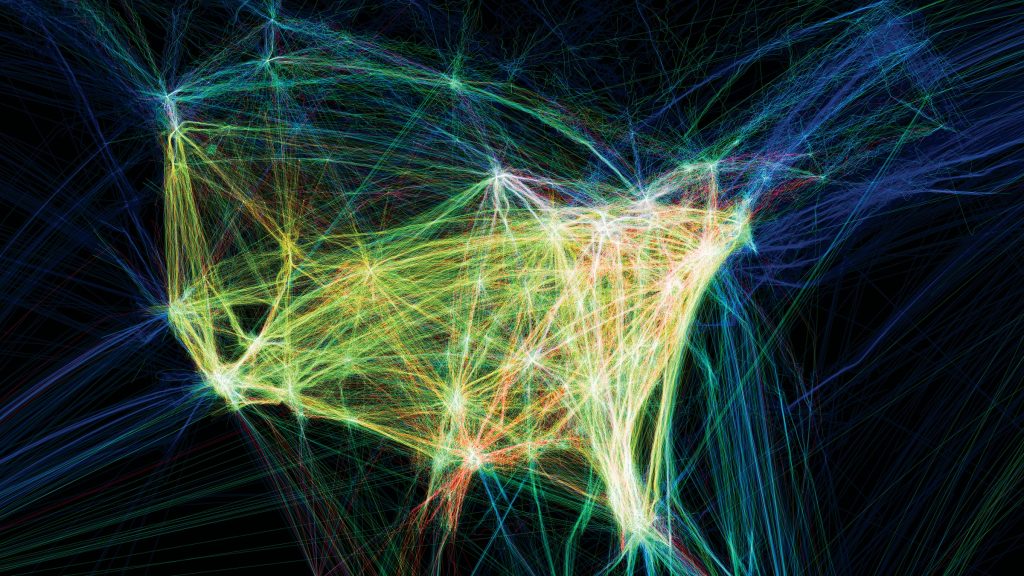
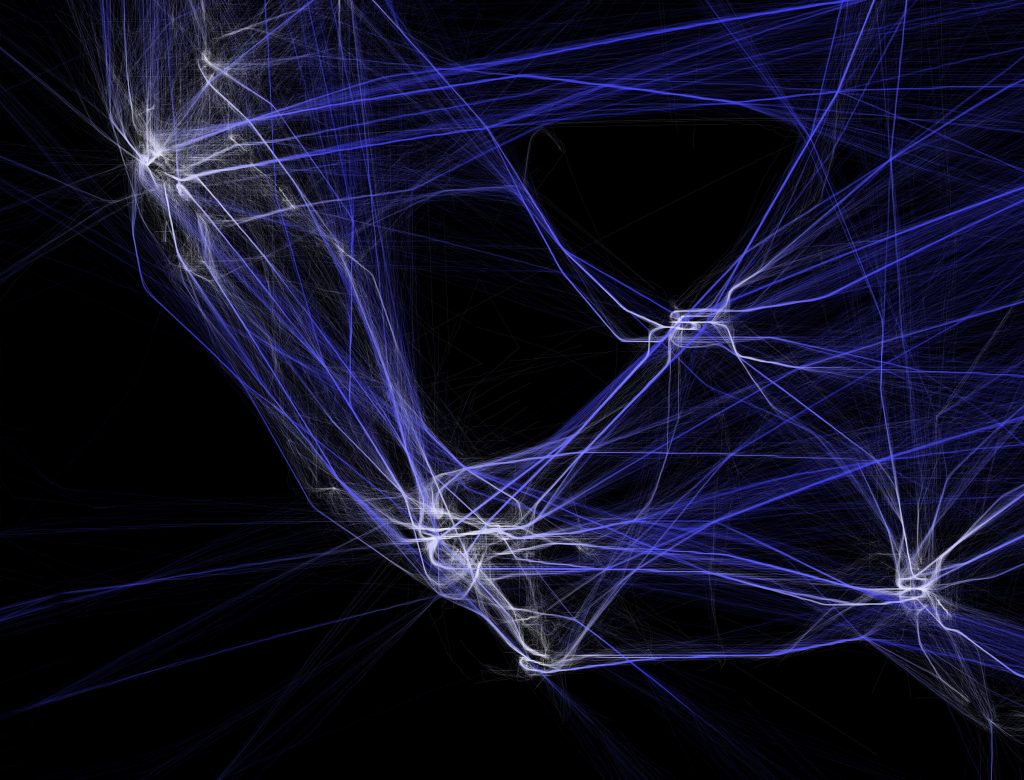
![[OLD FALL 2019] 15-104 • Introduction to Computing for Creative Practice](../../../../wp-content/uploads/2020/08/stop-banner.png)

